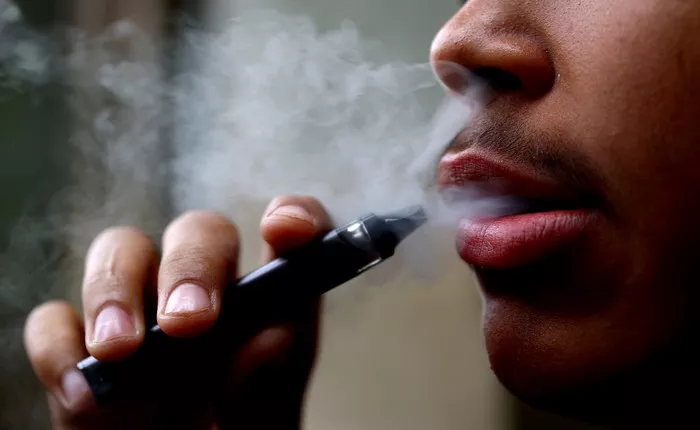The United Kingdom has long championed tobacco harm reduction (THR), promoting safer nicotine products such as e-cigarettes to help smokers quit. However, a recent investigation into NHS Trust practices and the forthcoming disposable vape ban suggest the country’s approach to vaping may be faltering amid policy inconsistencies, enforcement challenges, and conflicting priorities.
A Freedom of Information (FOI) request by the UK Vaping Industry Association (UKVIA) examined smoking cessation training across 17 NHS Trusts, covering over 150 hospitals. The results revealed troubling gaps: while most Trusts provide some training, a quarter do not make it mandatory, and two offer none at all. Moreover, the frequency of refresher training varies widely—from annual updates to intervals of up to five years—while some Trusts lack any policy on training updates.
Guidance on nicotine replacement therapies (NRTs) and vaping also varies. Most Trusts advise on traditional NRT products like gums and sprays, but not all include vaping as a cessation option. One Trust provides no cessation support, and several refrain from recommending vaping, citing unclear national guidance.
This fragmented approach undermines public health efforts. Research increasingly shows vaping is less harmful than smoking and an effective tool for quitting. A study by Brunel University London estimates that if half of England’s smokers switched to vaping, the NHS could save over £500 million annually. The 2022 Khan Review, commissioned by the government, urged healthcare professionals to promote vaping where appropriate and combat misinformation.
In response, UKVIA launched an online Healthcare Hub offering science-based vaping resources for professionals and patients and hosted webinars with public health experts to encourage consistent cessation strategies. Yet without national leadership mandating uniform training and guidance, local disparities threaten quit attempts and lives.
The Disposable Vape Ban: Risks and Uncertainties
The challenges come amid major policy changes. Starting June 1, 2025, the UK government will implement a nationwide ban on disposable vapes. While aimed at reducing youth use and environmental harm, the ban raises concerns for adult smokers and vapers who depend on disposables to quit or avoid cigarettes.
With the ban imminent, millions of users face uncertainty. Key questions remain unanswered: What alternatives will be available? Will some return to smoking or turn to the black market?
Tomas Hammargren, Chief Risk Reduction Officer at KLAR and a global expert in nicotine innovation, highlights the moment’s significance. “With the disposable vape ban fast approaching, the UK is at a turning point in nicotine policy,” he says. “Our research shows 73% of smokers and vapers want to quit in 2025. Prioritizing harm reduction is critical now.”
Enforcement Challenges and Black Market Growth
Critics warn the ban lacks a credible enforcement plan. Of the £30 million allocated annually to combat illicit tobacco, only a third goes to Trading Standards—the agency responsible for enforcing the vape ban. James Lowman of the Association of Convenience Stores warns this underfunding could fuel a thriving black market. Mark Oates from We Vape says the government is “making a rod for its own back” with a policy difficult to enforce and harmful to public health.
Enforcement agencies have already seized millions of illegal vape products. Yet, with limited new officers and weak penalties, rogue retailers continue to thrive. Data from Vape Club reveals over half of UK vapers have unknowingly bought illegal products, often from convenience stores, market stalls, or social media.
Smoking Cessation Progress at Risk
The government’s impact assessment predicts nearly a third of vapers may relapse to smoking after the disposable ban. Clive Bates, a leading THR advocate, warns that removing disposables—the most accessible alternative for many, especially lower-income users—could be disastrous. Vaping rates among adults have plateaued, and smoking cessation progress has stalled since 2020, making the stakes especially high.
While younger users are shifting to refillable devices, studies from University College London show many older or transitioning smokers rely on disposables as a vital step away from cigarettes. Removing this option without robust education and enforcement risks creating a dangerous gap.
Calls for Licensing and Better Communication
Many vapers remain unaware of the upcoming ban. A recent survey found about 600,000 adult vapers (1 in 10) had not heard about the new law. Nearly a quarter said they might buy illicit vapes to save money, highlighting the urgent need for better communication and clearer regulation.
In response, calls are growing for vape retailer and distributor licensing frameworks. Proponents argue licensing could improve enforcement funding, help identify bad actors, and ensure adult consumers have access to legal, regulated products. Ireland is preparing such a system starting in 2026, requiring annual fees for tobacco and vape retailers to reduce youth access and fund oversight. Whether the UK will follow remains uncertain.
A Science-Based Path Forward
The UK’s path to a smokefree future must rely on science, not fear. This means equipping healthcare workers with consistent training, recognizing vaping as a legitimate cessation tool, and crafting regulations that support quitting rather than hinder it. Without these corrections, the UK risks missing its 2030 smokefree goal and losing one of its strongest tools against tobacco harm.
Related topics:

